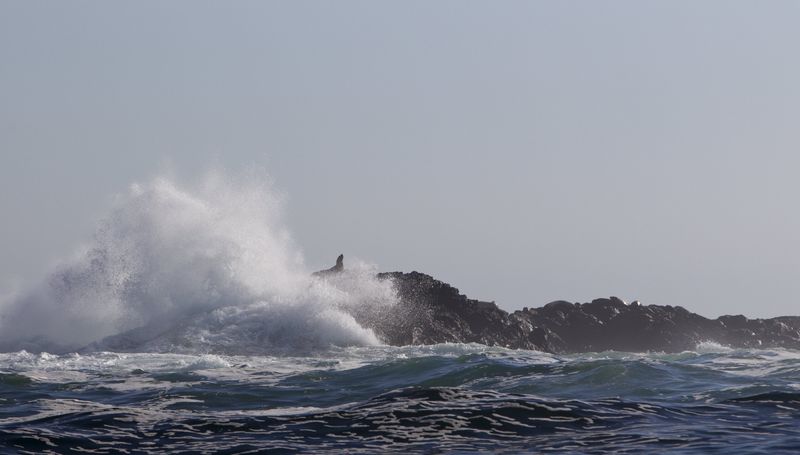By Paul Brian
TOFINO, British Columbia (Reuters) - Five Britons were killed when a Canadian whale-watching boat sank on Sunday, and authorities were still searching on Monday for a sixth person feared drowned in the frigid waters of the Pacific Ocean off the coast of British Columbia.
The boat, carrying 24 passengers and three crew, sank on Sunday afternoon, sparking a rescue effort by the Canadian military, Coast Guard, fishermen and mariners from a nearby Aboriginal community. Five people were confirmed dead and one was missing, while 21 were rescued.
The casualties included four men and a woman, and ranged in age from 18 to 76, the Coroners Service of British Columbia said in a statement. All five were passengers on the boat, not crew.
While all five were British nationals, three were tourists and two were living in Canada, the coroner's office said.
The coroners service did not release any information on the missing person.
"My thoughts are with the family and friends of all those affected by this terrible accident," UK Foreign Secretary Philip Hammond said in a statement.
The Leviathan II, a three-deck cruiser that can carry up to 46 people, was operated by Jamie's Whaling Station and Adventure Centres. Whale watching trips usually last two to three hours.
"It has been a tragic day. Our entire team is heartbroken over this incident and our hearts go out to the families, friends and loved ones of everyone involved," owner Jamie Bray said in a statement on the company's website. "We are cooperating with investigators to determine exactly what happened."
In 1998, a boat operated by the same company sank near Tofino, killing the ship's captain and a German tourist.
A military rescue helicopter and plane responded after the vessel sent a distress signal around 5 p.m. PT (0000 GMT), according to the Joint Rescue Coordination Centre.
Military planes and Coast Guard vessels lit up the area where the vessel remained partially submerged, eight nautical miles (15 km) northwest of Tofino.
Survivors and bodies were brought ashore in Tofino, a remote town of about 2,000 people on the west coast of Vancouver Island popular with surfers, hikers and tourists from around the world looking to catch a glimpse of humpback and Pacific gray whales.
"There was absolute pandemonium," said witness Sheila Simpson, who watched paramedics work to save injured victims and later comforted survivors: "They were in absolute shock."
Most of those rescued were taken to a hospital. Several have since been released.
John Forde, who works at another eco-adventure company, said passengers on a vessel like the Leviathan II, a 65-foot (20-meter) cruiser, would not have had to wear life jackets. The boat, like ferries, would only be required to have life jackets on board.

He told the Global Television Network that the waves were three to four meters (10 to 13 feet) high at the time of the sinking, conditions that were rough but not unusual for the area.
(With additing reporting by Nicole Mordant in Vancouver and Leah Schnurr in Ottawa; Writing by Andrea Hopkins in Toronto; Editing by Bernadette Baum, Alan Crosby and Jonathan Oatis)